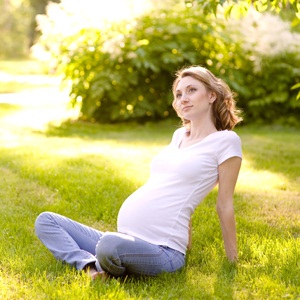
Pregnant women who live in leafy, green neighbourhoods are less likely to have premature or low birth weight babies, a new study suggests.
Researchers analysed data from more than 64,000 births in Vancouver, Canada, and found that expectant mothers who lived in a neighbourhood with plenty of trees, grass and other vegetation had a 20 percent lower risk of very preterm birth (before 30 weeks) and a 13 percent lower risk of moderate preterm birth (30 to 36 weeks).
Babies born to mothers who lived in greener neighburhoods were also less likely to be small for their gestational age, and weighed an average of 1.6 ounces more at birth than those whose mothers were from less green neighbourhoods.
The findings held up even after the researchers adjusted for factors such as neighbourhood income and walkability, and exposure to air pollution and noise, according to the study published online recently in the journal Environmental Health Perspectives.
Surprising findings
"This was a surprise. We expected the association between greenness and birth outcomes to disappear once we accounted for other environmental exposures such as air pollution and noise," study lead author Perry Hystad, an assistant professor of environmental and occupational health and safety at Oregon State University, said in a university news release.
Read: Air pollution linked to low birth weight
"The research really suggests that greenness affects birth outcomes in other ways, such as psychologically or socially," he added.
The study doesn't show a direct cause-and-effect relationship between green environments and better birth outcomes, and further investigation is needed to learn more about the link. Greater amounts of green space may provide residents with more opportunities to socialise and enhance their sense of belonging, or may help reduce stress and depression, Hystad suggested.
"We know green space is good. How do we maximize that benefit to improve health outcomes? The answer could have significant implications for land use planning and development," he said.
Premature and underweight babies often have more health and developmental problems as they grow, and the cost of care also can be much higher, Hystad said.
Read more:
Preterm birth blamed for too many problems
Heart problems in adults linked to premature birth
Exercise during pregnancy may benefit baby
Image: Beautiful pregnant woman outdoor from Shutterstock




 Publications
Publications
 Partners
Partners














